Maestría en Ciudad y Espacio Público Sustentable
ALICIA_DIAZ_WHATS_CTA3
Inicia tu proceso de admisión vía WhatsApp
ESTE_POSGRADO_CIUDAD_ESPACIO_SUSTENTABLE_CTA2
Este posgrado
Impulsa el diseño de hábitats sustentables y ofrece soluciones a los problemas sociales y espaciales de las ciudades.

Dra. Mónica Esperanza López Franco
Doctora en Estudios de Planeación Urbana (Bartlett School of Planning en University College London), maestra en Restauración de Sitios y Monumentos (Universidad de Guanajuato) y licenciada en Arquitectura (ITESO). Tiene experiencia profesional en diseño y consultoría urbana desde el sector privado, y en el sector público formó parte del equipo técnico para diseño y planeación de vías ciclistas y peatonalización de vialidades en Jalisco. Ha participado en proyectos de catalogación patrimonial y también ha colaborado con la asociación civil Tu Techo de Occidente. Es cofundadora e integrante de la Socially Just Planning Doctoral Network (2017); integrante de la red ICOMOS México y de la red UGovern dentro de la línea de Planning and Real Estate.
Sus líneas de investigación se centran en políticas de planeación urbana, procesos de desplazamiento habitacional, desigualdad urbana y conservación patrimonial a escala urbana, abordando temas como la gentrificación y comodificación urbana.


CUERPO_ACADEMICO_MAESTRÍA_CIUDAD_ESPACIO_PUBLICO_CTA3
Cuerpo académico
esta maestría
Desarrollas un proyecto que proponga soluciones con un enfoque integral y que cubra aspectos urbanos y territoriales, así como de sustentabilidad en todas sus dimensiones.
Te integras a una tradición de más de 40 años de trabajo interdisciplinario con organizaciones sociales y organismos gubernamentales, nacionales e internacionales.
Trabajas con un cuerpo académico con experiencia en sustentabilidad, gestión social, espacios públicos, gobernanza urbana, diseño urbano y procesos participativos.
subtitulo 01
parrafo 01
subtitulo 02
parrafo 02
Este posgrado es para ti
- De los campos de arquitectura, diseño urbano, ingeniería civil, ingeniería ambiental y áreas afines con interés por estudiar los problemas de la ciudad y el espacio público desde una perspectiva de sustentabilidad urbana.
- Que buscan gestionar el desarrollo de proyectos que contribuyan a mejorar la convivencia, la cohesión social y la equidad en las escalas barriales, distritales y metropolitanas.
- Que desean formar parte de procesos de planeación integral del hábitat para el diseño, recuperación y/o construcción de espacios urbanos colectivos.
- Gestionar el desarrollo de proyectos que contribuyan a mejorar la convivencia, la cohesión social y la equidad en las escalas barriales, distritales y metropolitanas.
- Administrar procesos de planeación integral del hábitat para el diseño, recuperación y/o construcción de espacios urbanos colectivos.
- Promover la gobernanza urbana, la negociación y la identificación de actores sociales en los procesos de toma de decisiones y de diseño de espacios públicos.
- Conducir proyectos bajo los marcos jurídicos de la administración pública para la transformación del entorno urbano.
- Integrar información sociodemográfica y económica en la formulación de proyectos de espacio público.
- Gestionar el desarrollo de proyectos que contribuyan a mejorar la convivencia, la cohesión social y la equidad en las escalas barriales, distritales y metropolitanas.
LAGC_TODAS_CIUDAD_ESPACIO_PUBLICO_SUSTENTABLE_BL5
Líneas de Generación y Aplicación del Conocimiento
Definición
Ecosistemas y territorio en la ciudad-región
Soluciones espaciales al hábitat inmediato
Las Líneas de Generación y Aplicación del Conocimiento (LGAC) son los campos temáticos que caracterizan al programa. En ellas confluyen las trayectorias de investigaciones o de trabajo profesional de profesores y estudiantes, desde una perspectiva sistémica de generación de nuevo conocimiento o su aplicación, según su naturaleza y enfoque.
Este posgrado trabaja en la generación de conocimiento y la formación de profesionales que desarrollen proyectos en torno a las siguientes líneas:
Este campo investigativo comprende sublíneas de trabajo relacionadas con:
- El desarrollo territorial y la sustentabilidad urbana.
- Dinámicas urbanas y modelos de ciudad.
- Subjetividades e identidad del territorio.
- Políticas urbanas, gobernanza y gestión de la ciudad.
- Articulación regional y emprendimiento productivo (esta línea es compartida con la Maestría en Proyectos y Edificación Sustentables).
Este ámbito investigativo incluye sublíneas de trabajo relacionadas con:
- La sustentabilidad aplicada en el espacio habitable.
- Conceptualizaciones sobre hábitat y sustentabilidad.
- Procesos de construcción social del hábitat sustentable.
- Marcos normativos hacia la sustentabilidad del hábitat.
- Creatividad y valor agregado para la habitabilidad sustentable.
Líneas de Generación y Aplicación del Conocimiento
Las Líneas de Generación y Aplicación del Conocimiento (LGAC) son los campos temáticos que caracterizan al programa. En ellas confluyen las trayectorias de investigaciones o de trabajo profesional de profesores y estudiantes, desde una perspectiva sistémica de generación de nuevo conocimiento o su aplicación, según su naturaleza y enfoque.
Este posgrado trabaja en la generación de conocimiento y la formación de profesionales que desarrollen proyectos en torno a las siguientes líneas:
Este campo investigativo comprende sublíneas de trabajo relacionadas con:
- El desarrollo territorial y la sustentabilidad urbana.
- Dinámicas urbanas y modelos de ciudad.
- Subjetividades e identidad del territorio.
- Políticas urbanas, gobernanza y gestión de la ciudad.
- Articulación regional y emprendimiento productivo (esta línea es compartida con la Maestría en Proyectos y Edificación Sustentables).
Este ámbito investigativo incluye sublíneas de trabajo relacionadas con:
- La sustentabilidad aplicada en el espacio habitable.
- Conceptualizaciones sobre hábitat y sustentabilidad.
- Procesos de construcción social del hábitat sustentable.
- Marcos normativos hacia la sustentabilidad del hábitat.
- Creatividad y valor agregado para la habitabilidad sustentable.
PLAN_DE_ESTUDIOS_CIUDAD_ESPACIO_PUBLICO_SUSTENTABLE_CTA
Plan de estudios
EXPERIENCIA_POSGRADO_BT1

ITESO’s graduate programs are supported by a renowned academic faculty comprising leading experts in their fields, who are actively engaged in real-world projects that offer concrete solutions. The university boasts over 100 researchers, 79 of whom are affiliated with Mexico’s National System of Researchers (SNII). Some are also members of the Mexican Academy of Sciences.
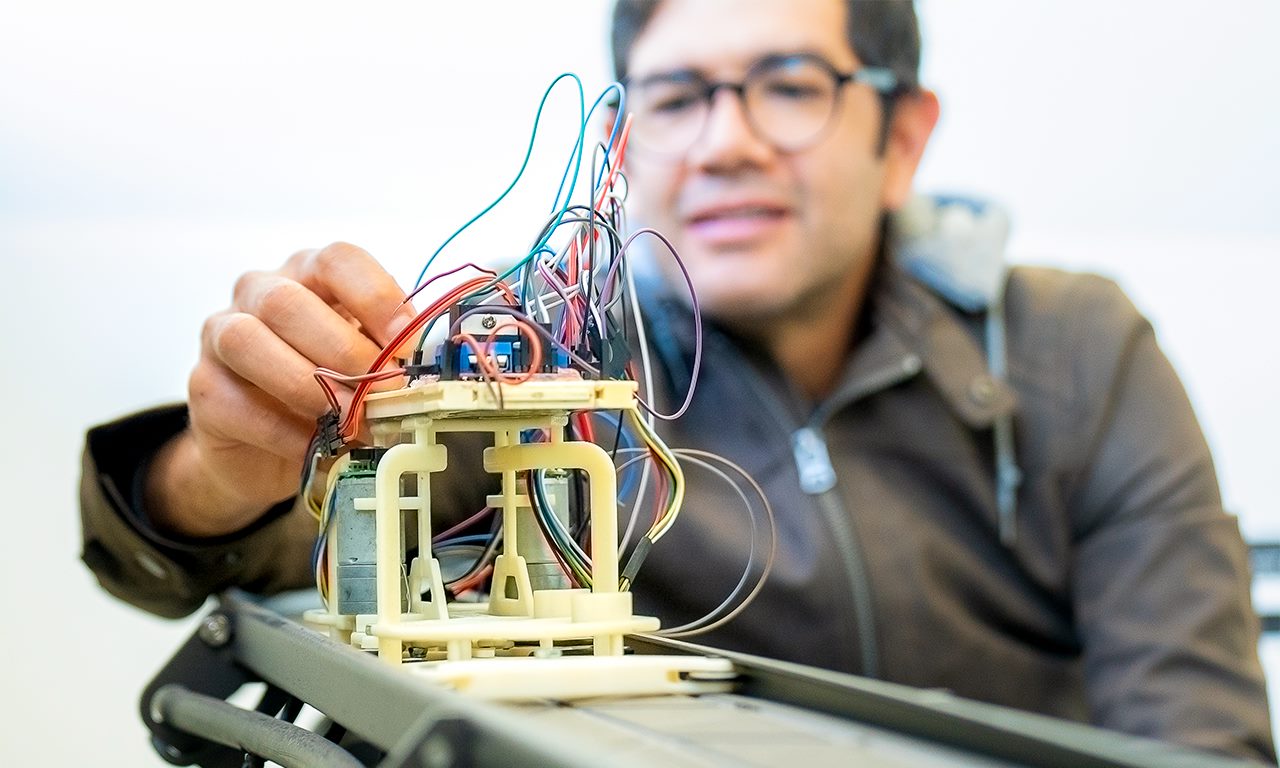
Research at ITESO generates new, rigorous, and relevant knowledge focused on some of the region’s and country’s most pressing challenges. Areas of impact include human rights, access to justice, renewable energy, sustainable resource management, food security, mental health and well-being, quality education, data science, and public communication, among others. These programs aim to offer development alternatives, influence public policy, foster technological innovation, and promote socially impactful projects.

One of the key advantages of ITESO’s graduate programs is the opportunity for international academic exchange through alliances with the International Association of Jesuit Universities (IAJU), a global network of over 320 institutions. Additionally, programs supported by Conacyt offer research stays in Mexico and abroad for fieldwork, study, or the completion of research projects.

Sustainability is an institutional priority that drives research, education, and community engagement projects at ITESO. These initiatives aim to develop comprehensive, long-term strategies for ecosystem stewardship that are in harmony with local communities. ITESO’s campus is one of the most sustainable in the country, and among the few in the world with a protected forest on its grounds.
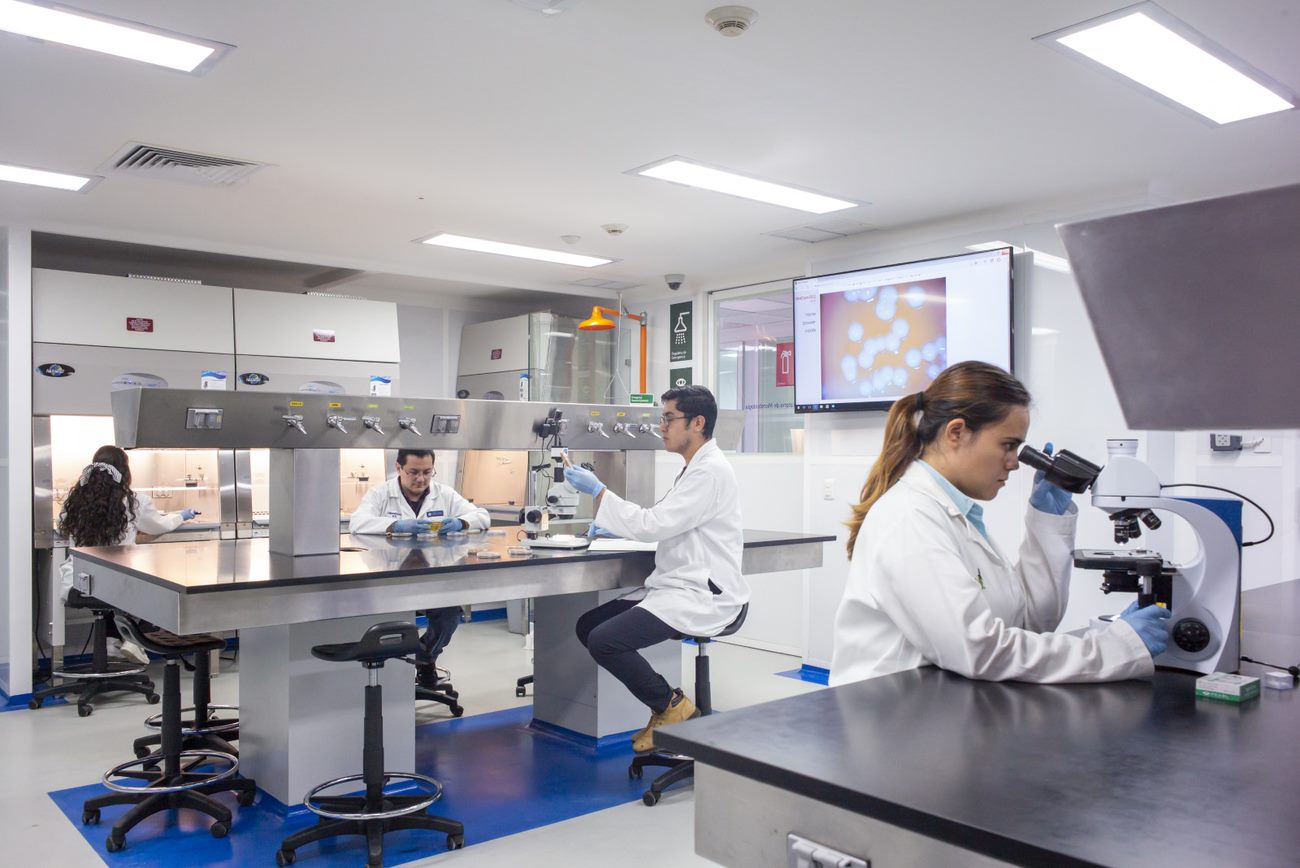
ITESO offers access to more than 100 specialized laboratories in areas such as nanotechnology, data science, food engineering, mechatronics, biotechnology, chemistry, systems, communication, multimedia, languages, nutrition, neuromarketing, arts, building technologies, and more. Facilities also include simulated courtrooms, exhibition spaces, mediation rooms, and audiovisual projection labs.
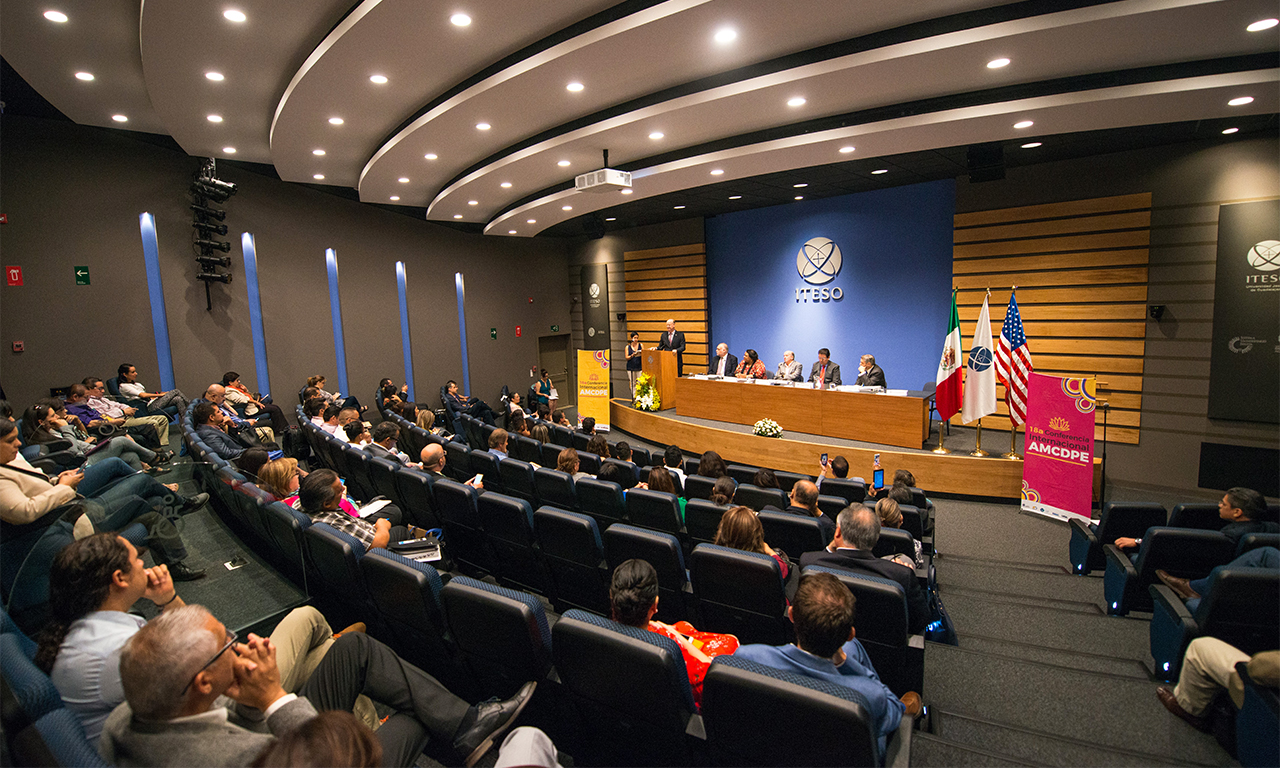
ITESO’s endowed chairs foster dialogue, critical thinking, and the exchange of ideas across sectors. They provide spaces for collaboration between academia, industry, and civil society, aimed at generating knowledge with high social impact. These initiatives also strengthen academic networks and support faculty and student mobility.
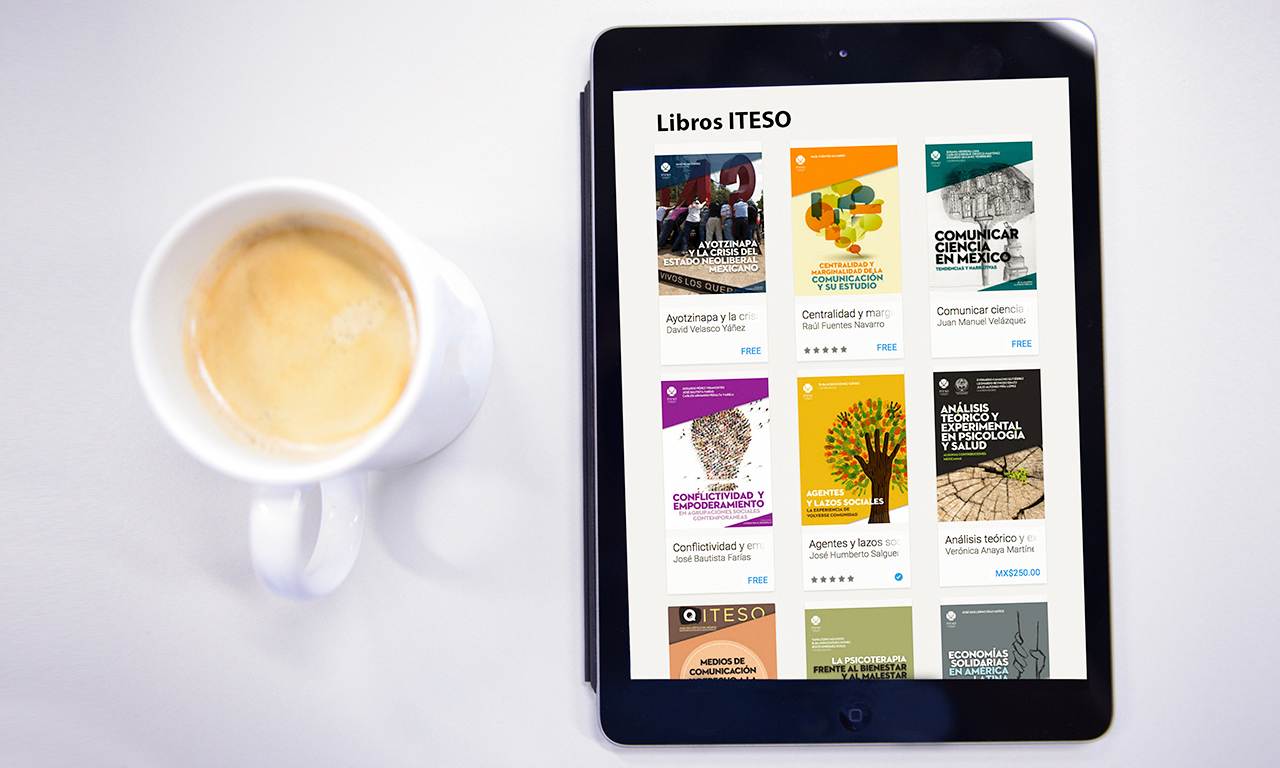
With more than 80 active academic journals and a robust catalogue of books, ITESO leads private universities in the region in scholarly publishing. Publications cover diverse disciplines, promote interdisciplinary collaboration, and are widely accessible—many available for free download online.

ITESO holds the most significant number of industry collaboration agreements among private universities in western Mexico. The university also offers dual-degree programs with institutions such as the University of Koblenz (Germany), Boston College, and Central Michigan University (USA).
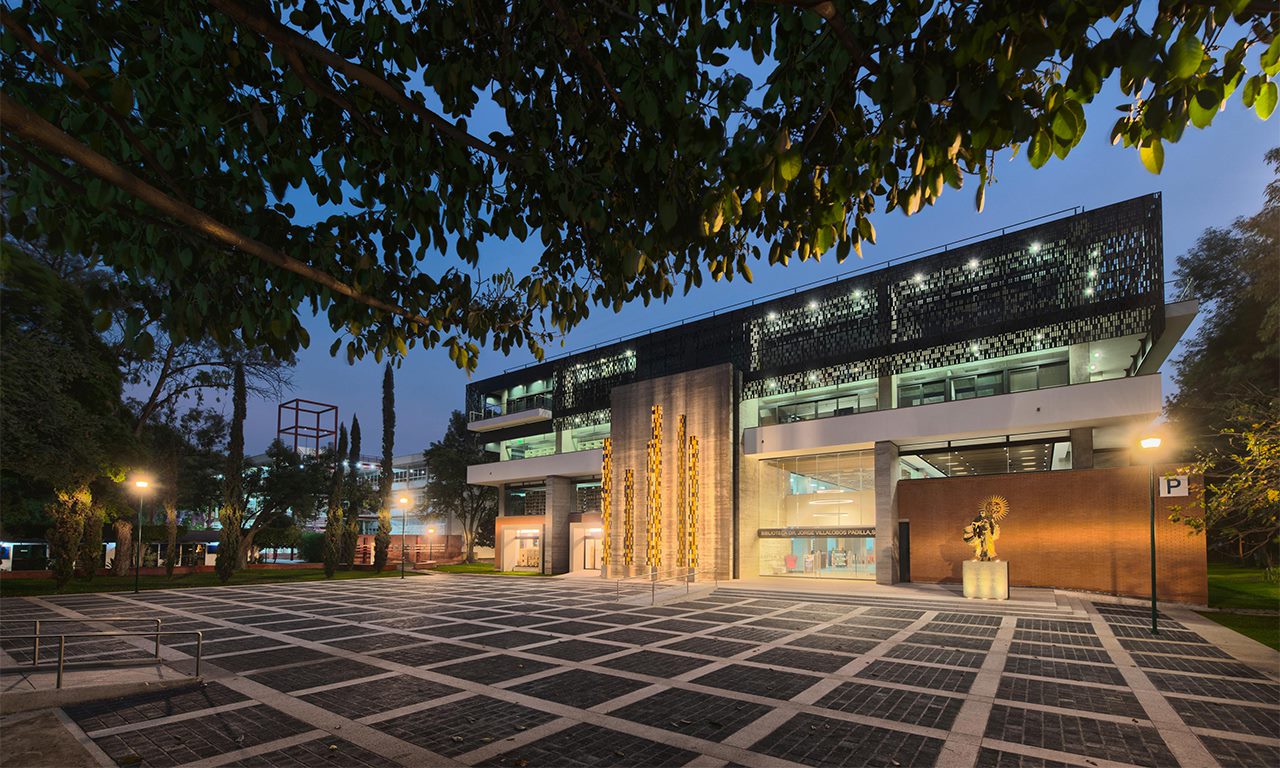
ITESO’s library houses more than 640,000 physical volumes and 200,000 digital resources, including books, journals, blueprints, films, and a collection of rare and antique books. Open to the public, the library features reading rooms, exhibition spaces, a cinema, an agora, a material library, and collaborative workspaces.

ITESO offers expert consulting and support for businesses at all stages of development through the Center for Innovation and Technology Management, the High-Impact Social Innovation Center, and the University-Business Center. Graduate students engage in projects focused on entrepreneurship, innovation, business acceleration, solidarity economies, and fair trade alternatives.
Distinguished faculty
Research programs
Academic mobility
Sustainability
Computer systems
Endowed chairs
Publications
Partnerships
Library
Business & Entrepreneurship
ITESO’s graduate programs are supported by a renowned academic faculty comprising leading experts in their fields, who are actively engaged in real-world projects that offer concrete solutions. The university boasts over 100 researchers, 79 of whom are affiliated with Mexico’s National System of Researchers (SNII). Some are also members of the Mexican Academy of Sciences.
Research at ITESO generates new, rigorous, and relevant knowledge focused on some of the region’s and country’s most pressing challenges. Areas of impact include human rights, access to justice, renewable energy, sustainable resource management, food security, mental health and well-being, quality education, data science, and public communication, among others. These programs aim to offer development alternatives, influence public policy, foster technological innovation, and promote socially impactful projects.
One of the key advantages of ITESO’s graduate programs is the opportunity for international academic exchange through alliances with the International Association of Jesuit Universities (IAJU), a global network of over 320 institutions. Additionally, programs supported by Conacyt offer research stays in Mexico and abroad for fieldwork, study, or the completion of research projects.
Sustainability is an institutional priority that drives research, education, and community engagement projects at ITESO. These initiatives aim to develop comprehensive, long-term strategies for ecosystem stewardship that are in harmony with local communities. ITESO’s campus is one of the most sustainable in the country, and among the few in the world with a protected forest on its grounds.
ITESO offers access to more than 100 specialized laboratories in areas such as nanotechnology, data science, food engineering, mechatronics, biotechnology, chemistry, systems, communication, multimedia, languages, nutrition, neuromarketing, arts, building technologies, and more. Facilities also include simulated courtrooms, exhibition spaces, mediation rooms, and audiovisual projection labs.
ITESO’s endowed chairs foster dialogue, critical thinking, and the exchange of ideas across sectors. They provide spaces for collaboration between academia, industry, and civil society, aimed at generating knowledge with high social impact. These initiatives also strengthen academic networks and support faculty and student mobility.
With more than 80 active academic journals and a robust catalogue of books, ITESO leads private universities in the region in scholarly publishing. Publications cover diverse disciplines, promote interdisciplinary collaboration, and are widely accessible—many available for free download online.
ITESO holds the most significant number of industry collaboration agreements among private universities in western Mexico. The university also offers dual-degree programs with institutions such as the University of Koblenz (Germany), Boston College, and Central Michigan University (USA).
ITESO’s library houses more than 640,000 physical volumes and 200,000 digital resources, including books, journals, blueprints, films, and a collection of rare and antique books. Open to the public, the library features reading rooms, exhibition spaces, a cinema, an agora, a material library, and collaborative workspaces.
ITESO offers expert consulting and support for businesses at all stages of development through the Center for Innovation and Technology Management, the High-Impact Social Innovation Center, and the University-Business Center. Graduate students engage in projects focused on entrepreneurship, innovation, business acceleration, solidarity economies, and fair trade alternatives.
INVESTIGACION_ITESO_GENERALES_POSGRADOS_TESTIMONIO
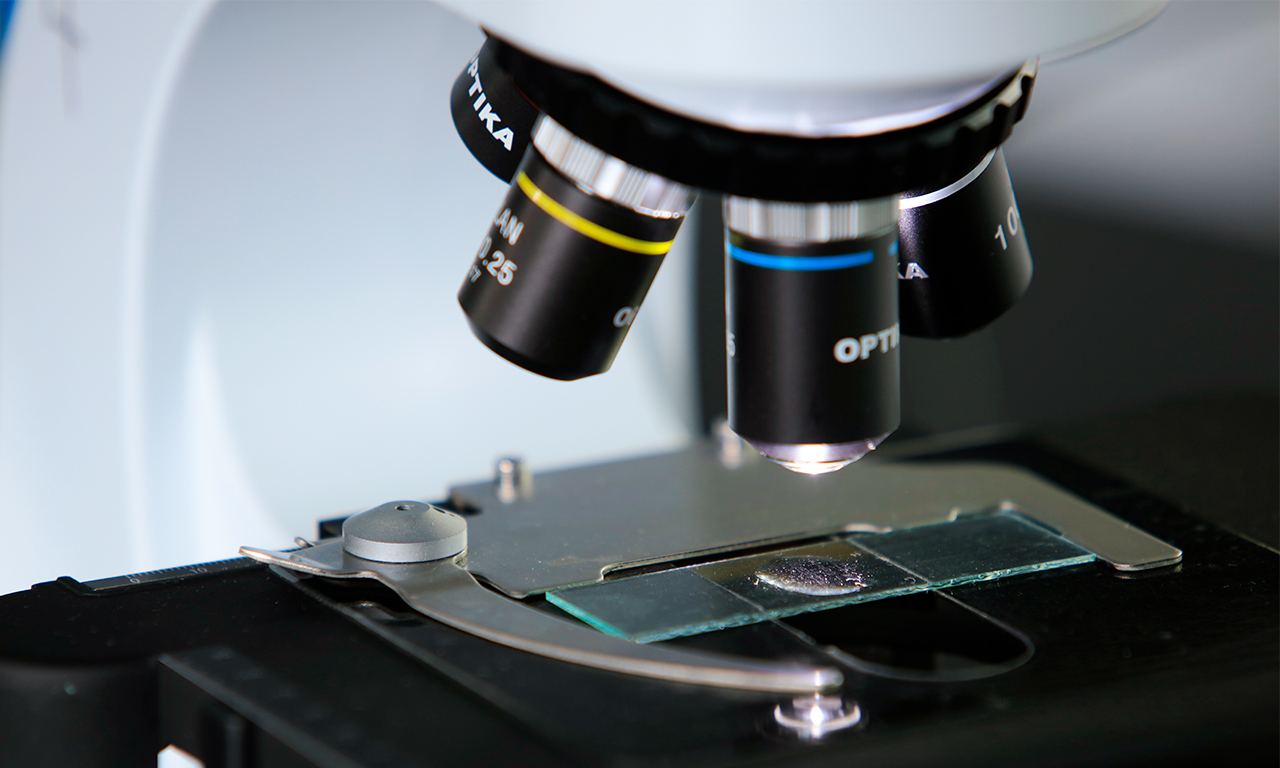
Research at ITESO
“Universities are called to be places of possibilities — to open horizons through research and engagement”.
Arturo Sosa, SJ
ACTIVIDADES_MCEPS_BC6
Noticias
Asset Publisher
OTROS_POSGRADOS_TITULO_GENERALES_POSGRADOS_BL3
Other graduate programs you may be interested in


